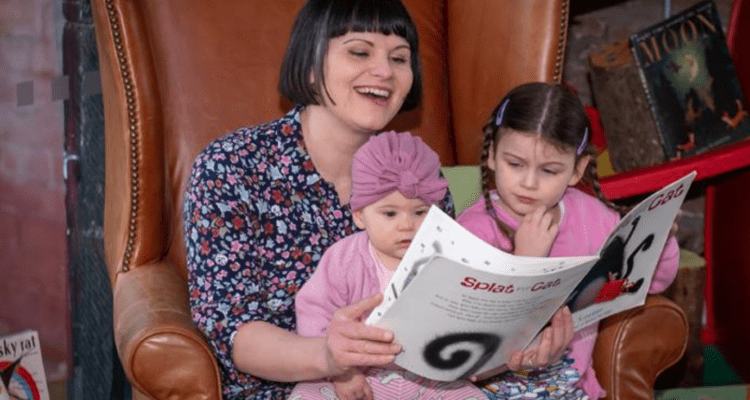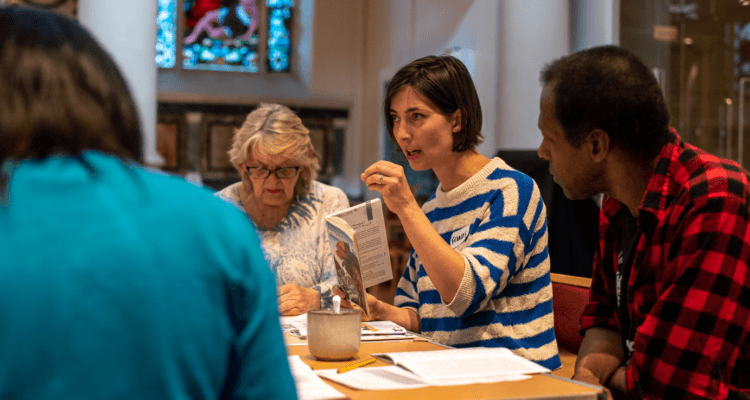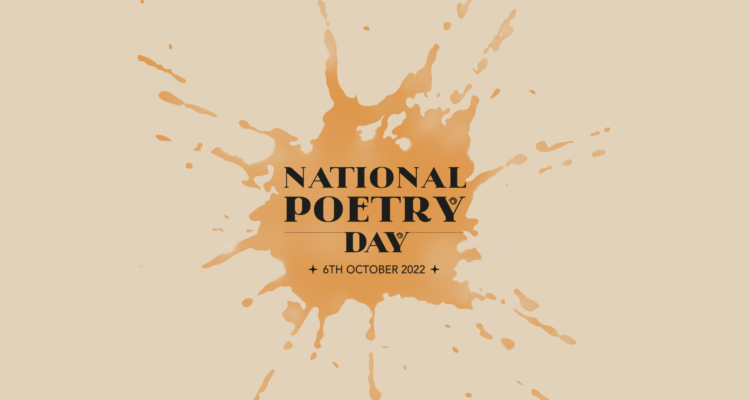Our Back Pages #1
Good news: thanks to our new series of blogs, "Our Back Pages", content from previous issues of The Reader magazine will now be made available for your reading pleasure!
Over the coming weeks we will be bringing you poetry, recommendations and essays that have featured in back issues and which, we believe, need to be shared.
This week, we offer you Charlie Louth's essay/recommendation of Keats's letters, which is full of the spirit of the letters themselves: hasty, headlong, and full of insight.
The Reader Recommends: 'John Keats’s Letters' by Charlie Louth
Some kind of letters are good squares others handsome ovals, and other some orbicular, others spheroid – and why should there not be another species with two rough edges like a Rat-trap?
That’s what Keats thought his letters might be like, like rat-traps: ‘by merely touching the spring delicately and etherially, the rough edged will fly immediately into a proper compactness; and thus you may make a good wholesome loaf, with your own leaven in it, of my fragments’. But I’m not sure how much leaven the letters need, from us. We always bring a bit, when we read, but the bread of Keats’s letters is so packed full of nourishment, like a German loaf, a meal in itself, that even to pick out crumbs and seeds from it keeps you going for days and days, and a slice is enough for something like a lifetime. They seem to have so much to give us, so much to sustain us, that we hardly need to put anything of our own into them. They are yeasty enough already, almost they overwhelm with their richness and life. But of course we need to read them, that’s leaven in itself, the breathing of sense and life into the written word. Though again, with Keats, the words are already alive, they have more life than we do, they jostle off the page, they have the voice of conversation in them, immediately you are in among them, being swirled along, with all the checks and snags and leaps and bounds and twists and turns and ‘points and resting places’ of life itself:
I go among the Fields and catch a glimpse of a Stoat or a fieldmouse peeping out of the withered grass – the creature hath a purpose and its eyes are bright with it. I go amongst the buildings of a city and I see a Man hurrying along – to what? the Creature has a purpose and his eyes are bright with it.
‘That which is creative must create itself’, Keats says, meaning mostly poetry, and that is what the letters do, unfolding out of themselves, swelling like rising dough, drawing on their own materiality, a beautiful stream of consciousness:
these last lines are in a much better style of penmanship thof a little disfigured by the smear of black currant jelly; which has made a little mark on one of the Pages of Brown’s Ben Jonson, the very best book he has. I have licked it but it remains very purpl[e] – I did not know whether to say purple or blue so in the mixture of the thought wrote purplue which may be an excellent name for a colour made up of those two, and would suit well to start next spring. Be very careful of open doors and windows and going out without your duffle grey – God bless you Love!–.
The slip of the pen (there are many more, and most editions leave them in) is very apt: all the letters contain the forming of thoughts into words, the growth of the thought as it is articulated and changed by the words it finds, the mind running ahead of the hand, then the hand running ahead of the mind, a kind of to and fro, a breathing extension of nascent thought and feeling. Often Keats is writing to get his thinking clear: ‘I may have read these things before, but I never had even a thus dim perception of them’. The effect is of a crystallization, a process Keats describes and enacts best himself when he talks of
the innumerable compositions and decompositions which take place between the intellect and its thousand materials before it arrives at that trembling delicate and snail-horn perception of Beauty.
Keats described his brother Tom as having ‘an exquisite love of Life’, and he did too. It is everywhere apparent in his letters, which are crammed full of all aspects and tones of life and contain almost every nuance of feeling (including jealousy, hate, prejudice, even cruelty, but never hypocrisy, self-importance or meanness). Here is pleasure, often associated with and aroused by fruit:
Talking of Pleasure, this moment I was writing with one hand, and with the other holding to my Mouth a Nectarine – good god how fine. It went down soft pulpy, slushy, oozy – all its delicious embonpoint melted down my throat like a large beatified Strawberry. I shall certainly breed.
Or he imagines walking round a garden:
apple tasting – pear-tasting – plumb-judging – apricot nibbling – peach scrunching –‑Nectarine-sucking and Melon carving. I have also a great feeling for antiquated cherries full of sugar cracks –.
His habit of feeling his way into things wasn’t always pleasurable: ‘the Man who thinks much of his fellows can never be in Spirits’, but ‘the setting sun will always set me to rights – or if a Sparrow come before my Window I take part in its existence and pick about the Gravel’. To a friend he is reported to have ‘affirmed that he can conceive of a billiard Ball that it may have a sense of delight from its own roundness, smoothness, volubility & the rapidity of its motion’. There is always, or at least until he is dying, an insistence on the possibility and necessity of personal happiness, a continually renewed confronting of the ‘vicious beastliness’ in the world with the vitality of his spirit:
I must choose between despair & Energy –‑I choose the latter – though the world has taken on a quakerish look with me, which I once thought was impossible–.
Life was never easy for Keats, but most of his letters show such an at-homeness in the world and in language that it can often seem that it was. This is partly because his letters are continually working to lift the spirits of his correspondents: ‘I wish I could pitch the Key of your spirits as high as mine is – but your organ loft is beyond the reach of my voice’. Despite that, something of the kind is the effect of reading them, they are an inexhaustible resource, you can dip into his language and it seems to renew you. Mostly, it is simple, strong and adequate to the world. It seems ‘warm and capable’, alive, tender and deft. To read it restores your faith in the language and in its ability to have a purchase. It actually begins to give you that purchase. ‘The great beauty of Poetry,’ Keats says, ‘is, that it makes every thing every place interesting’, and the same is true of his prose.
Though these letters were not written for us there is hardly anything in them that doesn’t concern us – Keats was so much in the midst of life, close to its pulse, and saw and felt and expressed so many of its gradations and articulations. To read him is like going on a walk and meeting a great number of interesting things and people in curious juxtaposition along the way. Things turn up unexpectedly. Ideas and images crop up out of the blue, giving us a very immediate sense of access to Keats’s mind, to which everything seems to have been present at once:
I feel more and more every day, as my imagination strengthens, that I do not live in this world alone but in a thousand worlds
and each of those possible worlds he lives out fully, takes to its particular extreme:
The only means of strengthening one’s intellect is to make up ones mind about nothing – to let the mind be a thoroughfare for all thoughts.
Part of the interest of reading Keats’s letters is to go down that thoroughfare yourself, to observe ‘the growth of the poet’s mind’ in Wordsworth’s phrase. ‘Nothing is finer for the purposes of great productions, than a very gradual ripening of the intellectual powers’, but Keats’s own development from trainee surgeon to poet was comet-like, so quick that it is hard to trace. Most of the time the letters seem ahead of the poems, then on 21 September 1819 he writes in passing that the autumn weather is so beautiful ‘that I composed on it’. What he composed was ‘To Autumn’, but the letter hardly lets on. Easier to grasp are the scattered remarks about poetry, which have become famous illuminations on their own: ‘We hate poetry that has a palpable design upon us’, or:
Poetry should surprise by a fine excess and not by Singularity – it should strike the Reader as a wording of his own highest thoughts, and appear almost a Remembrance
– with which contrast the not so well known:
Poetry should be great and unobtrusive, a thing which enters into one’s soul, and does not startle it or amaze it with itself, but with its subject.
Most of these isolated comments are early (in the short span of Keats’s writing life), mostly in 1818. There is a prodigality, a generosity about them, as if they were just the tips or shoots of something larger. And in fact, though Keats’s ambition to become a poet was very great, his ambition of ‘doing the world some good’ was perhaps even greater. In any case he seems to have hoped to ‘be able to put a Mite of help to the Liberal side of the Question before I die’ by doing something other than writing poetry. But ‘in the interval I will assay to reach to as high a summit in Poetry as the nerve bestowed upon me will suffer’.
The interval was all he had and it was not long. The vividness of Keats’s sensation is even more acute in the letters of his last year (‘How astonishingly does the chance of leaving the world impress a sense of its natural beauties on us’) but it is also more confined, as he was, much of the time, to his room in Wentworth Place, in excruciating proximity to ‘an object intensely desireable’ living next door, Fanny Brawne. The letters and notes to her, ‘kind and unkind’, have a lot of pain in them, they can be tense with jealousy and possessiveness, but still, by remaining true to the extremity of his feeling, they are instinct with life. ‘You must be mine to die upon the rack if I want you’, ‘You could not step or move an eyelid but it would shoot to my heart – I am greedy of you. Do not think of any thing but me’. And to Brown from Naples, when he could no longer bring himself to write to her: ‘The silk lining she put in my travelling cap scalds my head’. But I had better stop quoting. These letters are so alert to the realities and textures of life, they get so much of it into words which enliven our sense of life again. Read them. They are vital. They can only feed into life. They do a lot for ‘the Liberal side of the Question’.
(originally published in The Reader 13)
Share
Related Articles

Reader Revisited: Reading with Looked-After Children by Grace Frame
We're taking a trip down memory lane and revisiting articles from The Reader Magazine. This article first appeared in issue…

Meet The Reader: Staff Spotlight with Frances
Saturday 30 September is International Podcast Day so this month we got chatting to Frances MacMillan, the Head of Literary…

National Poetry Day 2022
To celebrate National Poetry Day 2022, The Reader has created a new poetry anthology exploring this year's theme, The Environment.…


